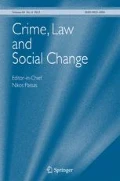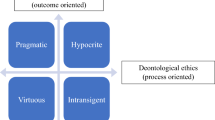Abstract
The term “corruptio” appears in many languages, but behind it lie several contrasting strands of thought and language. Current political usages of “corruptio”--emphasizing bribery, which in turn is just one of several families of ideas to which the term has variously been attached--date from the late 18th or early 19th century, have been strongly influenced by Anglo-Saxon legal thought, and may be traced to Roman roots. But French lexicographers developed a richer and more diverse vocabulary to encompass the crimes of civil servants and judges in addition to those of the people who sought to influence them. Religion, and in particular offices within the Church, also strongly influenced the ideas and vocabulary of corruption. Ultimately, “corruptio” can be said to have Biblical origins and a core meaning centered around injustice. The complexity and richness of the idea of corruption, as viewed from that perspective, in often lost in the narrower and more technical usages that dominate contemporary debate and analysis.
Similar content being viewed by others
Author information
Authors and Affiliations
Rights and permissions
About this article
Cite this article
Génaux, M. Social sciences and the evolving concept of corruption. Crime, Law and Social Change 42, 13–24 (2004). https://doi.org/10.1023/B:CRIS.0000041034.66031.02
Issue Date:
DOI: https://doi.org/10.1023/B:CRIS.0000041034.66031.02



